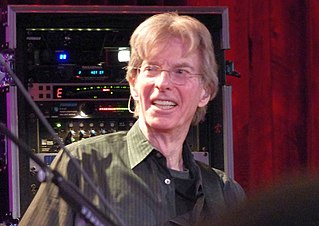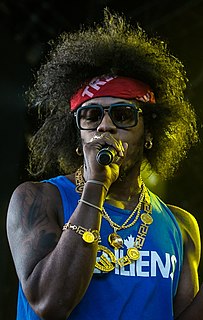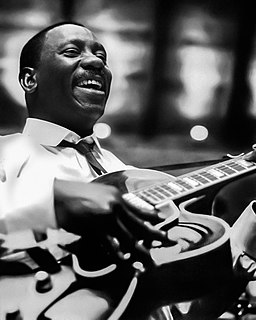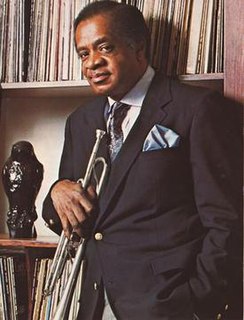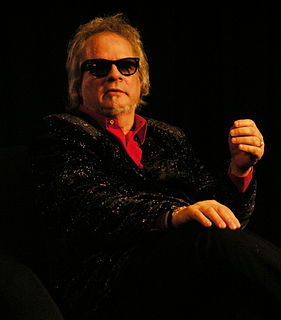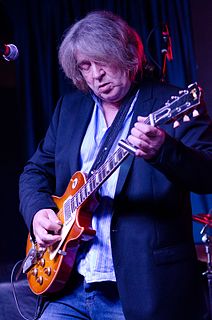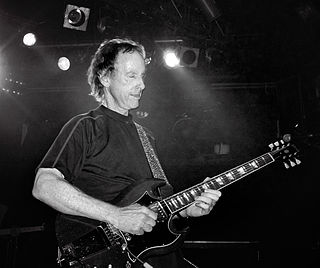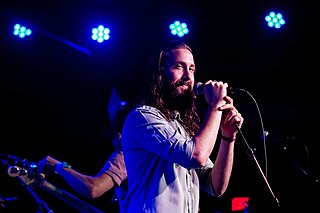A Quote by Phil Lesh
... We borrowed it all from Coltrane. I started encouraging everybody in the band to listen to John Coltrane - 'Check it out, see what these guys do.' They take one chord, the tonic chord, and just play all over it. 'We can do that too!' I wanted to make our music something really amazing - I wanted it to be jaw-dropping and turn on a dime and do all of those things that I knew music could do, and nobody told us we couldn't do it. I shouldn't say 'I,' though - Jerry Garcia was behind it the whole way.
Quote Topics
Amazing
Band
Behind
Borrowed
Check
Chord
Coltrane
Could
Dime
Dropping
Encouraging
Everybody
Guys
Jaw
Jerry
John
Just
Knew
Listen
Make
Music
New Music
Nobody
Our
Our Music
Out
Over
Over It
Play
Really
Really Amazing
Say
See
Something
Something Real
Started
Take
Things
Those
Though
Tonic
Too
Turn
Us
Wanted
Way
Whole
Related Quotes
But you listen to Coltrane and that's something human, something that's about elevation. It's like making love to a woman. It's about something of value, it's not just loud. It doesn't have that violent connotation to it. I wanted to be a jazz musician so bad, but I really couldn't. There was no way I could figure out to learn how to play.
I take music really seriously. I haven't been doing this for too long, but I've been loving music for a long time. It wasn't really about other artists. I just wanted to do something more for me. I wanted to make a better life for my mom. I didn't have any way to take care of her, and I wanted to make a better way. Music was an outlet, so I went with it, and there you go.
I'm aware of Yusef Lateef and Sun Ra and John Coltrane. My music cup runneth over. I try to encourage people: don't cut anything off, don't limit yourself. Give it a good listen: you might find something in that goofy Sun Ra noise, that dissonance. Before I learned 'official musicality' - which you should avoid at all costs - I listened to some Sun Ra and Yusef Lateef and John Coltrane and that's where 'Journey to the Center of the Mind' came from. When you intentionally and aggressively pursue musical communication with those powerfully impactful musical geniuses, you will pick up something.
You know, John Coltrane has been sort of a god to me. Seems like, in a way, he didn't get the inspiration out of other musicians. He had it. When you hear a cat do a thing like that, you got to go along with him. I think I heard Coltrane before I really got close to Miles [Davis]. Miles had a tricky way of playing his horn that I didn't understand as much as I did Coltrane. I really didn't understand what Coltrane was doing, but it was so exciting the thing that he was doing.
I skipped school one day to see Dizzy Gillespie, and that's where I met Coltrane. Coltrane and Jimmy Heath just joined the band, and I brought my trumpet, and he was sitting at the piano downstairs waiting to join Dizzy's band. He had his saxophone across his lap, and he looked at me and he said, 'You want to play?'
The very funny thing about "Like A Rolling Stone" is it was a six minute song, there was no music to read from. And there I was playing this unfamiliar instrument. So I would come in on the upbeat of one. I would wait until the band played the chord, and then as quickly as I could come in play the chord.
The chords in 'Light My Fire' are based on [John] Coltrane's version of this song. He just solos over A minor and B minor, which is exactly what we did. Coltrane had played with Miles on Kind of Blue and took the idea of modal soloing over one or two chords farther out than anybody. He was a real pioneer - he just kept evolving, going where no one had ever gone. He could always attain this state of ecstasy when he played. Live, there was so much energy, you couldn't believe it. He would play for hours. It was indescribable.
